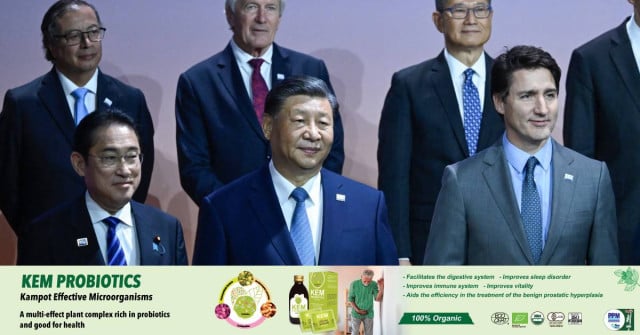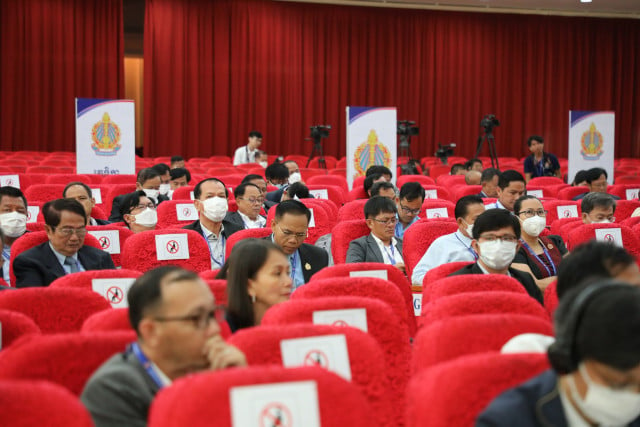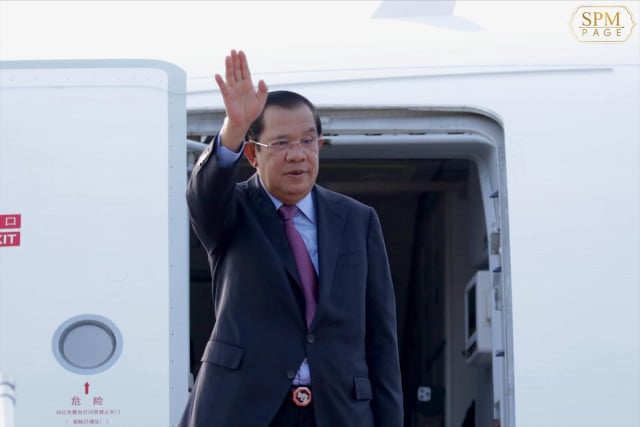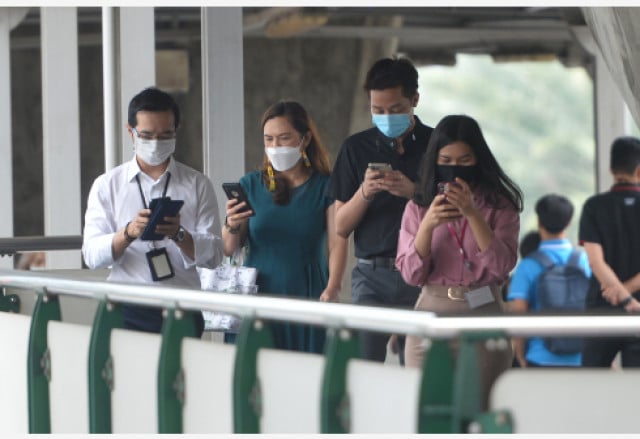Japan PM Tells Xi of 'Serious Concerns' in First Talks in a Year

- By Agence France-Presse (AFP)
- November 17, 2023 3:05 PM
San Francisco, United States -- Japan's Prime Minister Fumio Kishida said Thursday that he told President Xi Jinping he has "serious concerns" about Chinese military activity during their first direct talks in a year and slammed Beijing's ban on its seafood.
Kishida said he "expressed our serious concerns over China's increasing military activity near Japan, including its collaboration with Russia" during their meeting on the sidelines of the Asia-Pacific Economic Cooperation (APEC) forum.
"At the same time, I re-emphasised the extreme importance of the Taiwan Strait's peace and stability to the international community including Japan," Kishida told Japanese television channels after the talks in the United States.
"On the East China Sea, I expressed once again our serious concerns and urged the immediate removal of (Chinese) buoys set up in Japan's EEZ," Kishida said, referring to the country's exclusive economic zone.
Chinese state media reported that Xi told Kishida in the meeting in San Francisco the United States that Japan and China must "follow the trend of the times, focus on common interests (and) properly handle differences".
The Chinese leader said the two nations must "commit themselves to building a Sino-Japanese relationship that meets the requirements of the new era".
Military tensions have soared in the Pacific over China's actions in the disputed South China Sea and Beijing's drills around the self-ruled island of Taiwan, which China regards as its own territory.
Chinese vessels have also increasingly ventured further out into the Pacific.
In September, Tokyo said it had detected six ships -- including frigates, destroyers, one fast combat support ship and the Shandong aircraft carrier -- sailing some 650 kilometres (400 miles) south of Miyakojima island, east of Taiwan.
It confirmed that jets and helicopters had been detected taking off and landing from the Shandong. China has not commented officially on any drills being conducted in the Western Pacific.
In more conciliatory remarks, Kishida said Japan and China vowed to continue communicating on these and other issues.
"Japan and China are both superpowers that have responsibility to co-exist and prosper together, lead the region and international society and contribute to the world peace and stability," he said.
- 'Calm response' -
On the seafood ban, Kishida said he also "strongly demanded a calm response based on scientific evidence and the immediate removal of restrictions on imports of Japanese food products".
However, he also said the two sides "agreed to seek solutions through dialogue and discussions based on constructive attitude".
China banned all Japanese seafood imports after Japan began releasing treated wastewater into the Pacific Ocean from the stricken Fukushima nuclear plant in August, with Beijing accusing Tokyo of treating the sea like a "sewer".
Russia later followed suit and also banned imports. Japan insists the discharge is safe, a view backed by the UN atomic watchdog, the International Atomic Energy Agency.
Kishida also said he once again demanded the early release of Japanese citizens detained in China.
At least 17 Japanese people have been detained by Chinese authorities since China's amended anti-espionage law went into effect in 2015, according to the Japanese foreign ministry.
The Japanese embassy confirmed last month that one of its citizens -- an employee of the Japanese pharmaceutical company Astellas -- had been formally arrested, months after Beijing said it had detained the man on spying allegations.
Kishida also said that in his meeting with Joe Biden, the US president "offered an invitation for my official visit (to the United States) as a state guest sometime early next year".
© Agence France-Presse















